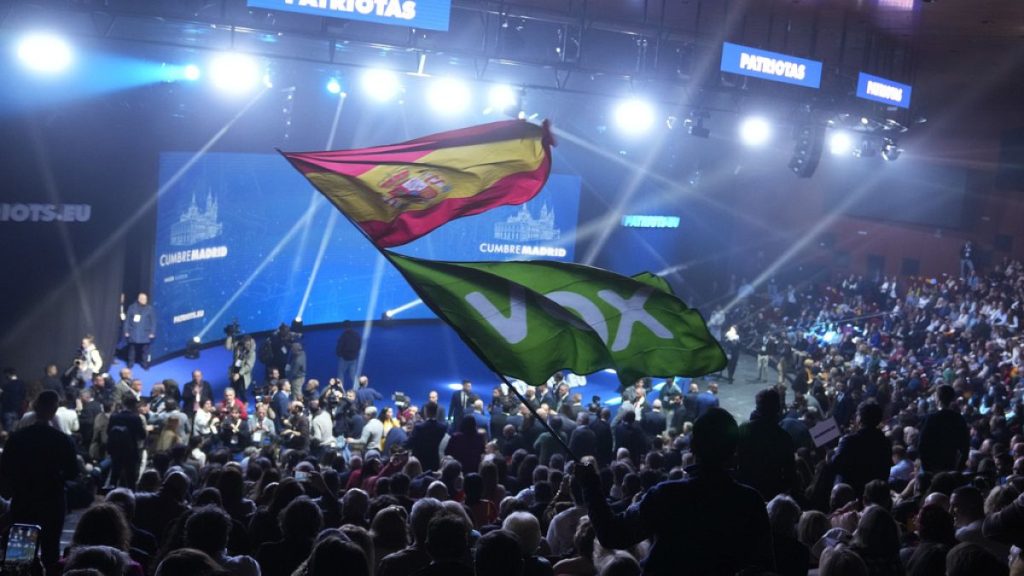A New Vision for Europe: The Rise of Patriots for Europe
The Patriots for Europe (PfE) party has declared its ambition to reshape the political landscape of the European Union under the banner of "Make Europe Great Again." At a recent leaders’ summit in Madrid, the far-right coalition outlined its strategy to challenge the dominance of traditional parties like the Socialists, Liberals, and the European People’s Party (EPP). The summit, attended by around 2,000 supporters, marked a significant moment in the party’s efforts to position itself as the "new normal" in Brussels. With a clear nod to Donald Trump’s "Make America Great Again" movement, PfE seeks to replicate similar populist and nationalist policies across the EU, signaling a stark shift away from the bloc’s long-standing liberal and progressive traditions.
A "Reconquest" of Europe: The Far-Right’s Vision
The summit in Madrid was not just a rally; it was a call to action. PfE leaders, including Geert Wilders from the Netherlands and André Ventura from Portugal, emphasized the need for a "reconquest" of Europe. Wilders delivered a fiery speech, declaring the era of centrist leaders like Emmanuel Macron, Olaf Scholz, and Pedro Sánchez as over. "It’s your time. It’s over now. They are history," he said, signaling a bold challenge to the EU’s political establishment. Ventura echoed this sentiment, urging the crowd to "fight, fight, fight" for a "Christian Europe" that reflects traditional values and national sovereignty. The party’s rhetoric is unapologetically confrontational, framing itself as the vanguard of a movement to reclaim Europe from what it sees as liberal elites and bureaucratic overreach.
The Strategy: Learning from Trump and Transatlantic Alliances
PfE’s strategy is not just about slogans; it’s about replicating the playbook of populist movements across the Atlantic. Party leaders openly draw inspiration from Donald Trump’s success in the United States, particularly his ability to galvanize a base around issues like immigration, free trade, and cultural identity. The party’s leaders argue that Trump’s recent return to the White House is a sign that the time for change in Europe has arrived. To achieve this, PfE is building alliances beyond Europe, hosting figures like Kevin Roberts, president of the conservative American think tank The Heritage Foundation, and airing video messages from Venezuelan politician María Corina Machado and Argentina’s President Javier Milei. This transatlantic approach reflects PfE’s vision of a broader conservative movement that transcends national borders.
A Unified Front: The Parties Behind Patriots for Europe
PfE is not a single party but a coalition of far-right and nationalist groups from across Europe. Its members include Marine Le Pen’s Rassemblement National (France), Viktor Orbán’s Fidesz (Hungary), Matteo Salvini’s Lega (Italy), and Andrej Babiš’s party in Czechia, among others. Together, these parties have already made significant inroads in the European Parliament, where PfE is the third-largest group with 86 MEPs. Their unity is built on a shared commitment to national sovereignty, traditional values, and the defense of free speech and security. Petr Macinka, a Czech MEP, summed up their vision: "We need a return to realistic policies based on a free market and strong nation-states. Only patriots can make Europe great again." This message resonates with voters disillusioned by the EU’s handling of issues like immigration, economic policy, and cultural identity.
Key Leaders and Their Messages
The summit in Madrid showcased the charisma and conviction of PfE’s leadership. Marine Le Pen, a veteran of French politics, described the current moment as a "truly global turning point," arguing that the election of Donald Trump cannot be seen as merely a political shift but as a sign of a deeper cultural and ideological transformation. "Everyone understands that something has changed," she said, framing PfE as the embodiment of this change. Meanwhile, Santiago Abascal, the Spanish leader of Vox and now the head of PfE, emphasized the importance of unity and mutual support among member parties. "We are no longer just the future—we are the real, immediate future," he declared, reflecting the confidence of a movement that believes it is on the brink of power.
The Road Ahead: Challenges and Implications
PfE’s rise comes at a time of significant uncertainty for the EU. The party’s leaders have outlined a clear agenda, including dismantling the Green Deal, opposing LGBTQ+ rights, and rolling back regulations they claim stifle businesses and citizens. Their focus on families, traditional values, and national sovereignty resonates with a growing number of voters who feel alienated by the EU’s progressive agenda. However, PfE’s success is not guaranteed. The party faces significant opposition from mainstream parties, civil society groups, and the EU’s bureaucratic machinery. Additionally, the internal cohesion of the coalition could be tested as member parties navigate national elections and the complexities of EU policymaking. Yet, for now, PfE is undeterred, framing itself as the vanguard of a new era in European politics. Whether this vision prevails will depend on its ability to mobilize support, adapt to changing circumstances, and translate rhetoric into actionable policies.












